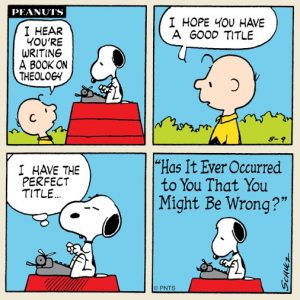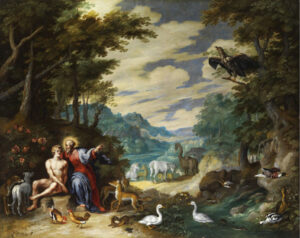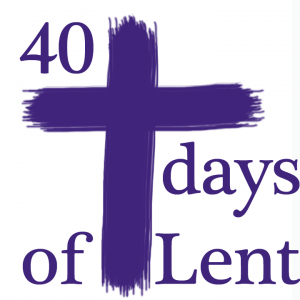
“Name this child.” That’s what I say to parents of infant baptismal candidates as I take their children from them. The words are not actually written in the baptismal service of The Book of Common Prayer as they are in some other traditions’ liturgies, but there is a rubric that says, “Each candidate is presented by name to the Celebrant . . . .”[1] so asking for the child’s name is a practical way of seeing that done. It’s practical, but it’s also a theological statement.
There is a common religious belief found in nearly all cultures that knowing the name of a thing or a person gives one power over that thing or person. One finds this belief among African and North American indigenous tribes, as well as in ancient Egyptian, Vedic, and Hindu traditions; it is also present in all three of the Abrahamic religions, Judaism, Christianity, and Islam.
The naming we do at baptism echoes the naming that takes place in Judaism when a male infant is circumcised on the eighth day after his birth. In that service, called the brit milah or bris, the officiating mohel prays, “Our God and God of our fathers, preserve this child for his father and mother, and his name in Israel shall be called ________”[2] and the prayer continues that, by his naming, the infant will be enrolled in the covenant of God with Israel. A similar thing is done when a girl is named in the ceremony called zeved habat or simchat bat, the “gift (or celebration) of the daughter” on the first sabbath following her birth.[3] With the name given at baptism, the church says to its newest member, “This is who you are: washed in the waters of baptism, sealed by the Holy Spirit, and marked as Christ’s own forever,”[4] a brother or sister in the church, a fellow member of the Body of Christ, an adopted child of God the Father.
Continue reading



 There is an old tradition in the church: on Trinity Sunday, rectors do their best to get someone else to preach. If they have a curate or associate priest, he or she gets the pulpit on that day. If not, they try to invite some old retired priest to fill in (as Rachel has done today). No one really wants to preach on Trinity Sunday, the only day of the Christian year given to the celebration or commemoration of a theological doctrine, mostly because theology is dull, dry, and boring to most people and partly because this particular theological doctrine is one most of us get wrong no matter how much we try to do otherwise.
There is an old tradition in the church: on Trinity Sunday, rectors do their best to get someone else to preach. If they have a curate or associate priest, he or she gets the pulpit on that day. If not, they try to invite some old retired priest to fill in (as Rachel has done today). No one really wants to preach on Trinity Sunday, the only day of the Christian year given to the celebration or commemoration of a theological doctrine, mostly because theology is dull, dry, and boring to most people and partly because this particular theological doctrine is one most of us get wrong no matter how much we try to do otherwise.  Come Holy Spirit, Comforter, Spirit of Truth,
Come Holy Spirit, Comforter, Spirit of Truth,

 When my nephew, who’s now in his mid-40s, was about six years old, he was given a homework assignment that he found frustrating and he just didn’t want to finish it, but his mother made him sit down and do it rather than something else more to his liking. In his frustration, he blurted out, “I hate you!” My late sister-in-law responded calmly, “That’s too bad because I love you.” After a moment of reflection, my nephew amended his angry outburst: “I love you, too,” he said, “but I don’t like you right now.”
When my nephew, who’s now in his mid-40s, was about six years old, he was given a homework assignment that he found frustrating and he just didn’t want to finish it, but his mother made him sit down and do it rather than something else more to his liking. In his frustration, he blurted out, “I hate you!” My late sister-in-law responded calmly, “That’s too bad because I love you.” After a moment of reflection, my nephew amended his angry outburst: “I love you, too,” he said, “but I don’t like you right now.” I really don’t like television commercials, and I’m pretty sure I’m not alone in that regard. It’s a common complaint; we all talk about how much we dislike TV advertising. We all subscribe to Amazon Prime, Netflix, Hulu, and other streaming services so we can avoid them. And yet, sometimes a particularly memorable advertisement tag-line will worm it’s way into one’s regular conversation. My step-father had one of those: whenever my mother made anything even slightly piquant he would say, “Mama mia, that’s a spicy meatball,” which some of you may recognize from an old Alka-Seltzer commercial.
I really don’t like television commercials, and I’m pretty sure I’m not alone in that regard. It’s a common complaint; we all talk about how much we dislike TV advertising. We all subscribe to Amazon Prime, Netflix, Hulu, and other streaming services so we can avoid them. And yet, sometimes a particularly memorable advertisement tag-line will worm it’s way into one’s regular conversation. My step-father had one of those: whenever my mother made anything even slightly piquant he would say, “Mama mia, that’s a spicy meatball,” which some of you may recognize from an old Alka-Seltzer commercial.

